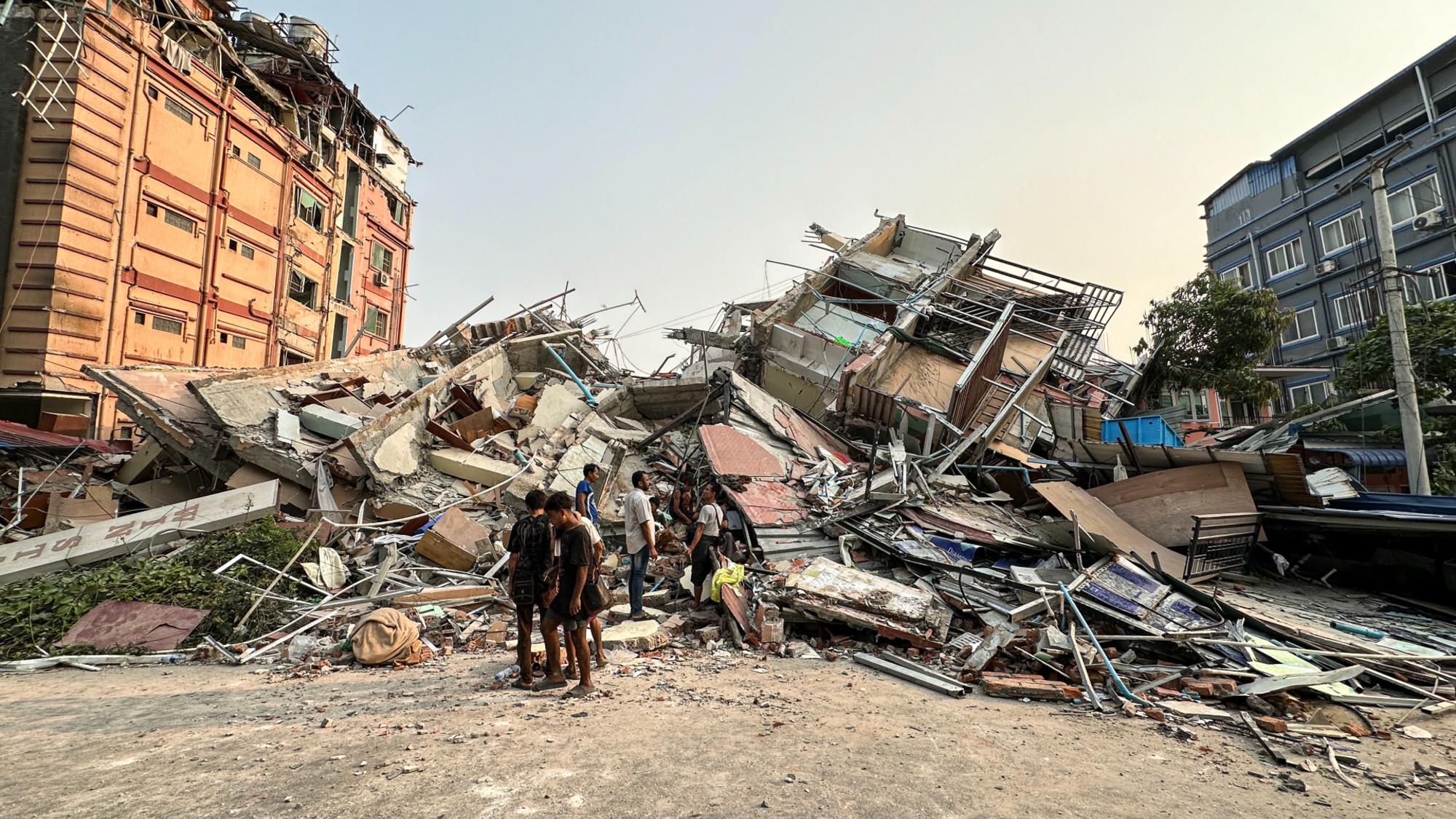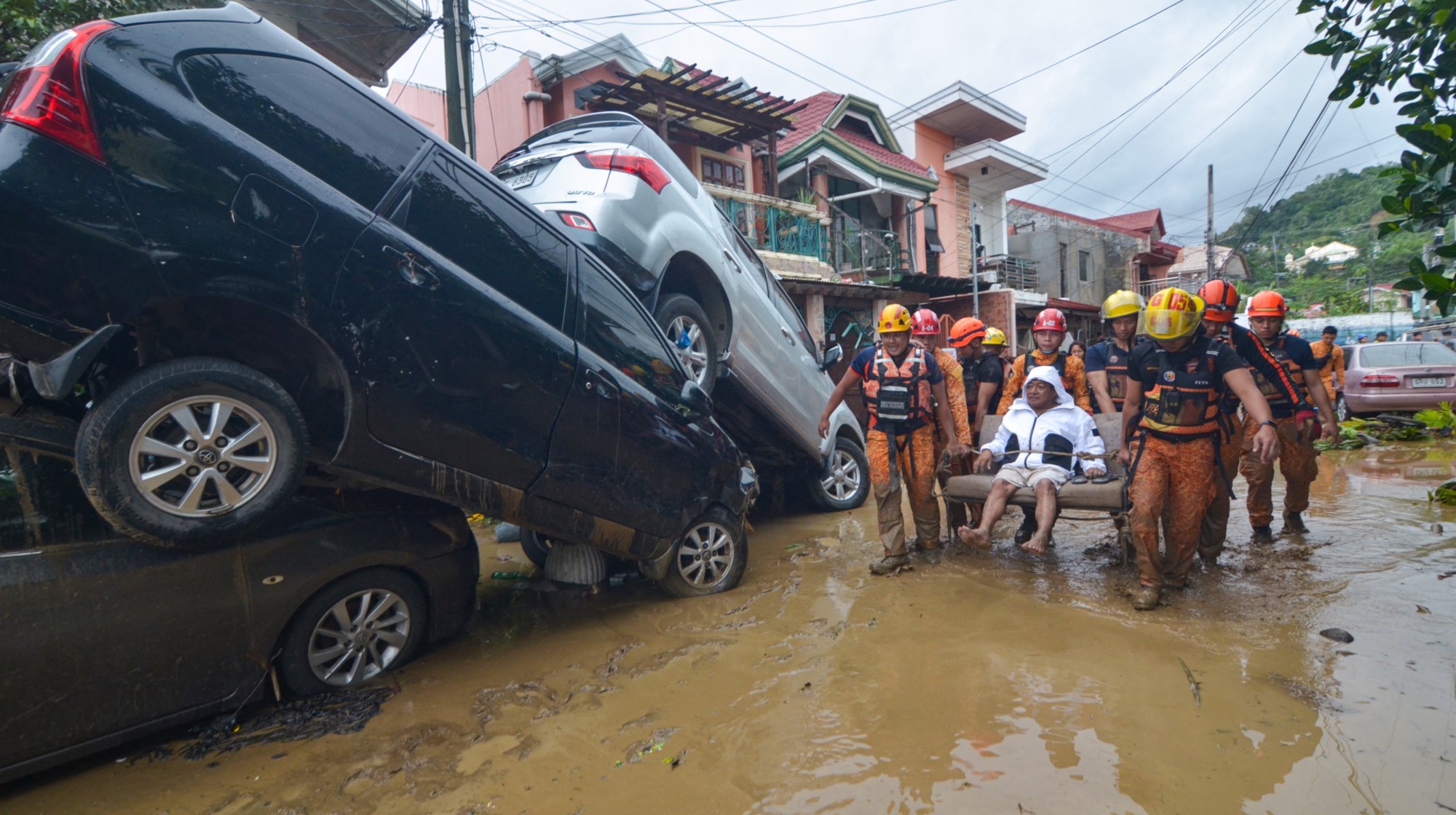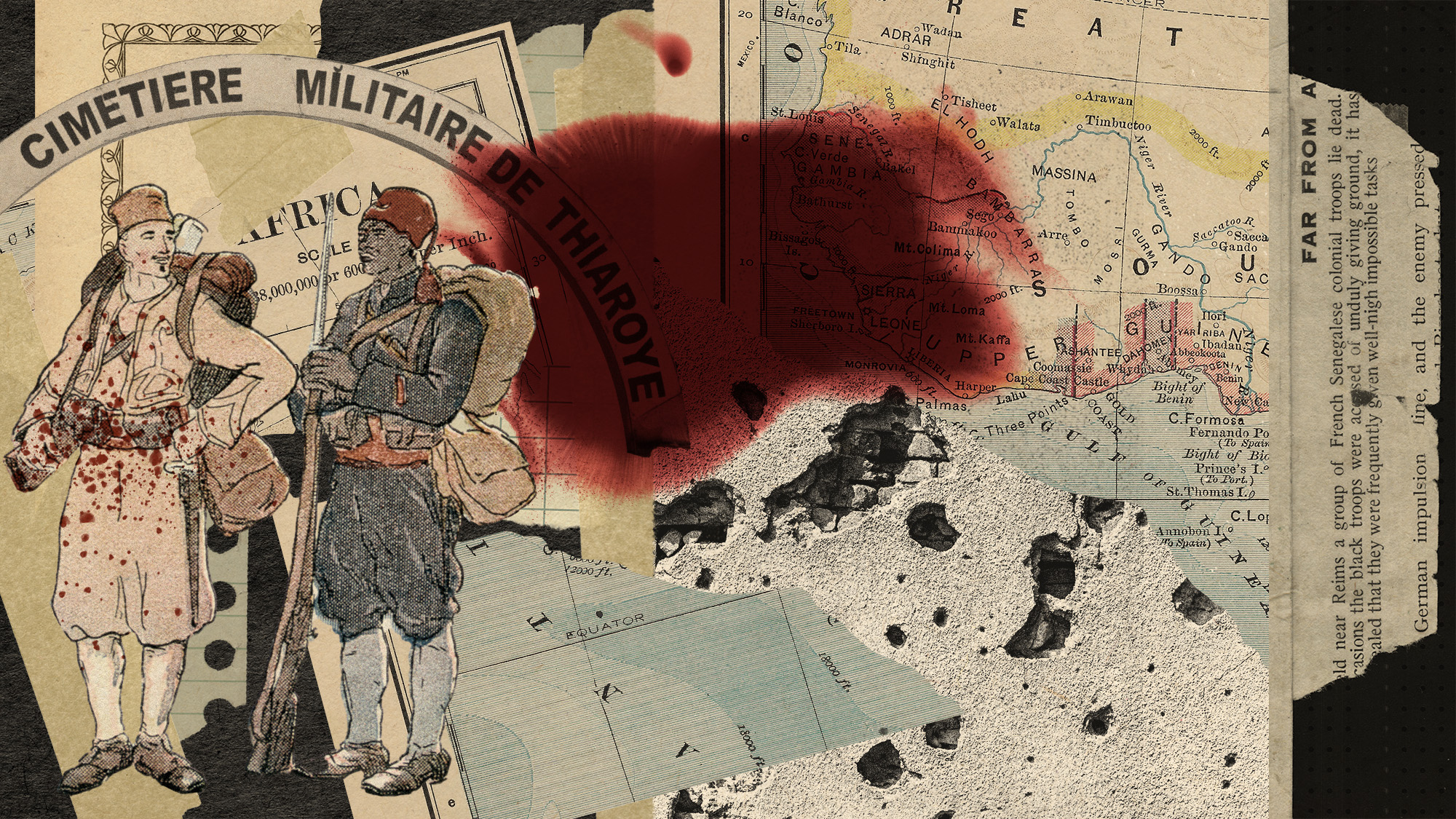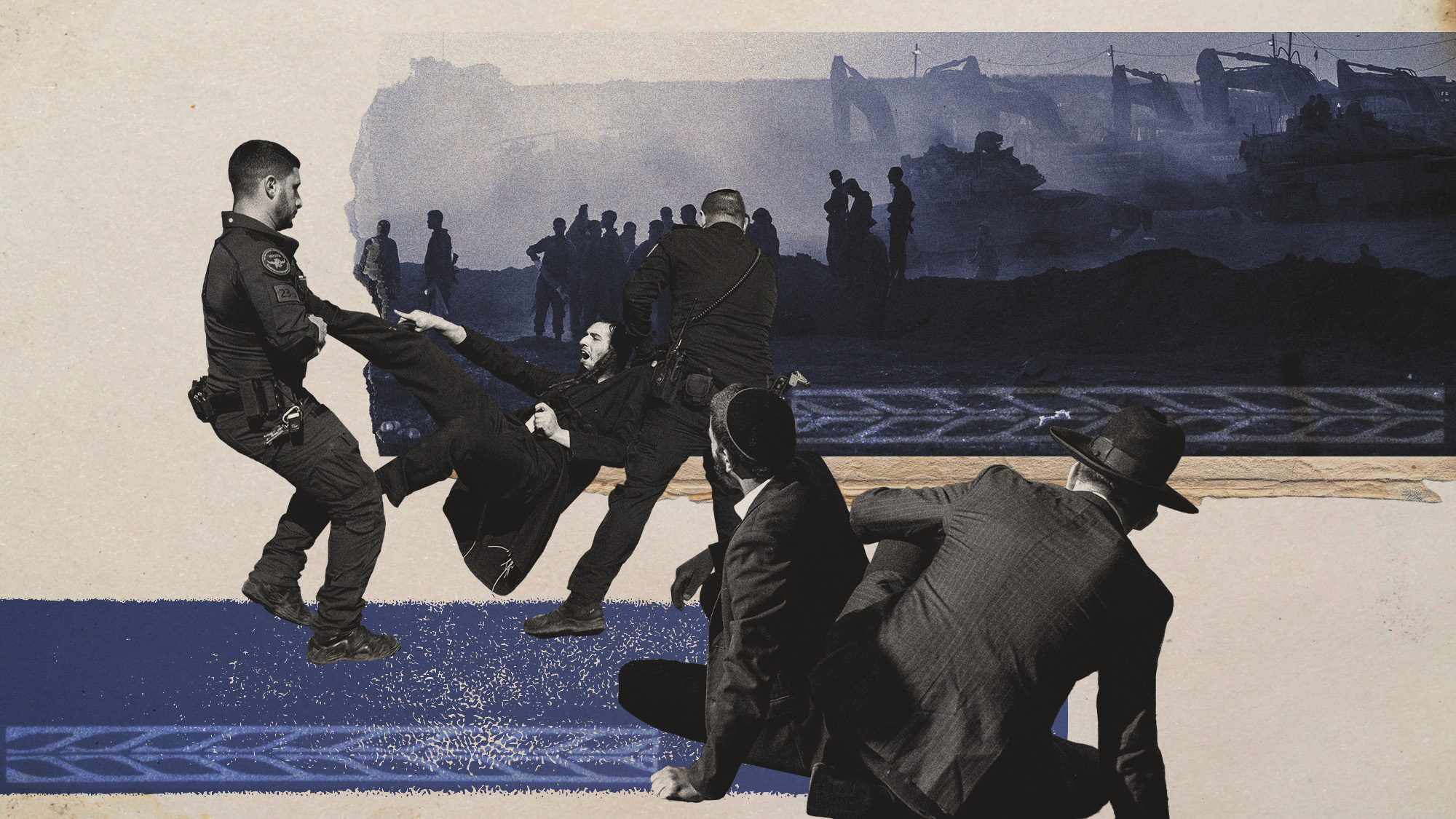How will the Myanmar earthquake affect the nation's military junta?
More than 2,700 people have reportedly died from the earthquake


A free daily email with the biggest news stories of the day – and the best features from TheWeek.com
You are now subscribed
Your newsletter sign-up was successful
A 7.7-magnitude earthquake in Myanmar on March 28 killed more than 2,700 people, causing a major issue to loom over the country already besieged by civil war: how this natural disaster will impact Myanmar's ruling junta. Its autocratic tendencies appear to be creating even more problems following the temblor, but some analysts say it could pave the way for the military junta's downfall.
Ruling Myanmar since seizing power from the country's democratically elected leader, Aung San Suu Kyi, in 2021, the junta has reportedly not stopped fighting against pro-democracy rebel forces despite the deadly disaster. United Nations officials told the BBC that the junta has continued bombing rebel territories after the earthquake, even as the rebels declared a two-week pause in the fighting. It is unclear whether this is a precursor for an even more powerful junta or the beginning of its end.
What did the commentators say?
How the junta's generals "handle the emerging catastrophe could make or break their grip on power," said Feliz Solomon at The Wall Street Journal. Mandalay and the capital, Naypyidaw, two of the most damaged cities in the nation, are "important power centers for the junta, which, according to independent monitoring groups, controls less than half of Myanmar's territory."
The Week
Escape your echo chamber. Get the facts behind the news, plus analysis from multiple perspectives.

Sign up for The Week's Free Newsletters
From our morning news briefing to a weekly Good News Newsletter, get the best of The Week delivered directly to your inbox.
From our morning news briefing to a weekly Good News Newsletter, get the best of The Week delivered directly to your inbox.
There is precedent for natural disasters having wide-ranging effects in the country: A 2008 cyclone in Myanmar pushed the country's leaders (another junta at the time) to "engage with the United Nations" and is "considered a watershed moment that helped lay the groundwork for Myanmar's first democratic elections in a quarter-century" in 2008, said Solomon.
But "observers are worried the junta that has been losing swathes of territory to ethnic armed groups may continue a push to reverse its fortunes on the battlefield," said Philip Heijmans at Bloomberg. There are also "concerns that international aid may not get to where it's needed," as was the case during the deadly cyclone in 2008. Between the "enduring conflicts and now a deadly earthquake, the suffering of Myanmar's 50 million people is far from over."
There are also several spiritual aspects to the earthquake. The head of the junta, General Min Aung Hlaing, rules Myanmar "based on astrological predictions. It can even be said that he governs the nation through astrological means," an astrologer whose identity was kept secret said to Al Jazeera. There are "omens behind this earthquake," and "according to the signs of this earthquake, his downfall is not far away."
These "omens and rumors have long been prized in an authoritarian country with little free flow of information," said Hannah Beech at The New York Times. The junta's leaders are "hanging on even more to faith as their grip on the country diminishes," and Min Aung Hlaing "relies heavily on Buddhist talismans to stay in power." Junta leaders have "relied on fortunetellers and astrologers to guide their policy decisions," meaning the earthquake could have a real effect on their choices.
A free daily email with the biggest news stories of the day – and the best features from TheWeek.com
What next?
Many believe the earthquake is an "ominous sign for the general," said the Times. However, reports have emerged that the junta has indeed been "blocking aid to earthquake survivors, as international agencies urged 'unfettered access' to humanitarian aid in the conflict-riven nation," said The Guardian.
The earthquake also comes as the junta has been "consistently losing ground, controlling less than 30% of the country's territory, though it retains control of the biggest cities," said The Guardian. The pro-democracy rebels have also said they intend to continue the fight after additional earthquake recovery efforts occur.
Justin Klawans has worked as a staff writer at The Week since 2022. He began his career covering local news before joining Newsweek as a breaking news reporter, where he wrote about politics, national and global affairs, business, crime, sports, film, television and other news. Justin has also freelanced for outlets including Collider and United Press International.
-
 The environmental cost of GLP-1s
The environmental cost of GLP-1sThe explainer Producing the drugs is a dirty process
-
 Greenland’s capital becomes ground zero for the country’s diplomatic straits
Greenland’s capital becomes ground zero for the country’s diplomatic straitsIN THE SPOTLIGHT A flurry of new consular activity in Nuuk shows how important Greenland has become to Europeans’ anxiety about American imperialism
-
 ‘This is something that happens all too often’
‘This is something that happens all too often’Instant Opinion Opinion, comment and editorials of the day
-
 The fall of the generals: China’s military purge
The fall of the generals: China’s military purgeIn the Spotlight Xi Jinping’s extraordinary removal of senior general proves that no-one is safe from anti-corruption drive that has investigated millions
-
 How Bulgaria’s government fell amid mass protests
How Bulgaria’s government fell amid mass protestsThe Explainer The country’s prime minister resigned as part of the fallout
-
 Dozens dead as typhoon slams Philippines
Dozens dead as typhoon slams PhilippinesSpeed Read The storm ravaged the island of Cebu
-
 The WW2 massacre dividing Senegal and France
The WW2 massacre dividing Senegal and FranceUnder the Radar A new investigation found the 1944 Thiaroye attack on ‘unarmed’ African soldiers was ‘premeditated’, and far deadlier than previously recorded
-
 Will Starmer’s India visit herald blossoming new relations?
Will Starmer’s India visit herald blossoming new relations?Today's Big Question Despite a few ‘awkward undertones’, the prime minister’s trip shows signs of solidifying trade relations
-
 'Axis of upheaval': will China summit cement new world order?
'Axis of upheaval': will China summit cement new world order?Today's Big Question Xi calls on anti-US alliance to cooperate in new China-led global system – but fault lines remain
-
 The IDF's manpower problem
The IDF's manpower problemThe Explainer Israeli military's shortage of up to 12,000 troops results in call-up for tens of thousands of reservists
-
 Why are Ukraine's anti-corruption issues roaring back into focus now?
Why are Ukraine's anti-corruption issues roaring back into focus now?TODAY'S BIG QUESTION A new bill curbing anti-corruption bodies prompted Ukraine's first mass protests against President Volodymyr Zelenskyy in years. Where are the roots of this domestic unrest, and what could it mean for Ukraine's future?
